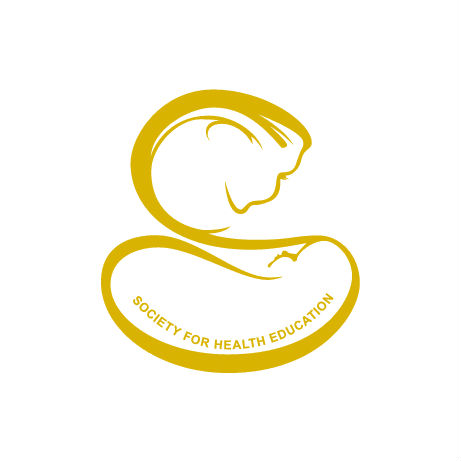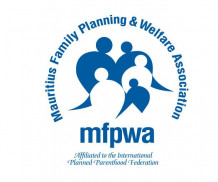

| 31 March 2016
Society for Health Education (SHE) Maldives
Society for Health Education (SHE) is an organization that is proactive in identifying and addressing the crucial health and social concerns of the Maldives. SHE was founded in 1988 by four women with the mission to enhance the quality of life of Maldivian families. The organization embraces the following mandate: Strive to improve the quality of life of the Maldivian people Harness the expertise of national professionals, on a voluntary basis for development programmes Endeavour to raise awareness of health and social issues Today, SHE is one of the largest, most vibrant NGOs in the Maldives which addresses issues concerning Thalassemia, Counselling and Psychosocial Support, Sexual and Reproductive Health (SRH) and Health Education. The organization reaffirms its commitment to sustain these initiatives, and to further increasing public awareness on issues that influence family well-being. Effectiveness of health promotion initiatives are ensured by adopting applicable service delivery mechanisms, fostering improvements in reproductive health parameters, continuing Thalassemia prevention activities, promoting responsible parenthood concepts, facilitating empowerment of women and youth, supporting victims of abuse by providing gender based violence screening services, essential SRH services and psychosocial support and referral services, as well as extending Counselling to adolescents and families, and encouraging community ownership of development. SHE operates an in-house clinic offering a range of services under one roof in the Maldives capital, Male’. The in-house clinic provides three main services; SRH services, counselling and psychosocial services, and thalassemia and diagnostic services. The SRH clinic of SHE has a long-standing reputation for client friendly and quality service provision on SRH and various other general health issues. The clinic conducts mobile outreach activities including awareness programmes targets for Key Affected Populations. Under the HIV and AIDS programme of the clinic, free Voluntary Counselling and Testing (VCT) services are offered to the general public. The Thalassemia prevention programme undertaken by SHE comprises an awareness component along with provision of screening services.The prevention programme aims to reduce the number of thalassemics born in the Maldives by providing testing services to identify thalassemia carrier status and raising awareness of how the disorder is inherited. The first, and only thalassemia DNA testing facility in the Maldives was established at SHE in 2005 to minimize the number of inconclusive results. The Counselling and Psychosocial services comprises face to face counselling, telephone counselling, and play therapy for young children. In addition to day to day regular services, the clinic conducts several skill development programmes targeting young people, vulnerable populations, teachers and parents. Furthermore, the organization adopts an integrated approach to health education and service delivery and its role includes increasing the accessibility of services and using media for education and communication. This includes collaborating with other Civil Society Organizations and State Institutions that work towards relating to issues on health and well-being. The society runs outreach programmes and mobilizes voluntary support to develop projects and to maintain and enhance service provision. With this number of services, SHE reaches over 5000 people of the population of the Maldives yearly. The success of the organization depends on the unreserved commitment of the organization’s members, volunteers, and staff. SHE strives to raise the bar higher at every opportunity, to ensure that the organization could progressively add greater value to clients and stakeholders, thereby uplifting the community’s general wellbeing.

| 31 March 2016
Mauritius Family Planning & Welfare Association
Established in 1957 as a grass-root movement, the Mauritius Family Planning & Welfare Association (MFPWA) was one of the earliest organizations in Africa focusing on family planning issues. As the nation struggled to find a way to address pressing population issues, a group of advocates formed MFPWA and started to provide contraceptive services directly to women. In 2018 the MFPWA is governed by an Act of Parliament 2018 as a body corporate. Today, the organization caters for the sexual and reproductive health (SRH) needs of the whole community. It also has particular strands of activity relating to specific groups including sexually abused children, elderly people, men and marginalized populations on Rodrigues and Agalega Islands. MFPWA has 30 staff and 50 volunteers and offers services through 2 permanent facilities and several service points. It also runs a day care centre for infants and children as a social enterprise initiative. The Association delivers services that include family planning, the prevention and management of HIV through voluntary counselling and testing, infertility management, antenatal and post-natal care, post-abortion care, the diagnosis and treatment of sexually transmitted infections (STIs) and screening for cancers of the reproductive systems in particular breast, cervical and prostate. The Association began its first rehabilitation of sexually abused children in 2003 and has built a solid reputation in the domain. Services for the rehabilitation of victims of gender based violence had been extended to Rodrigues Island on a pilot basis in 2019. The Member Association also operates peer-educator-led outreach programmes targeting work places, namely: hotels, manufacturing industries, call centres, male-dominated sectors such as transport, police, agriculture and fisheries. MFPWA has played a critical role in promoting the integration of comprehensive sexuality education into the national school curriculum and its powerful, informed advocacy has been influential in shaping government’s agenda and policies on SRH and population issues. MFPWA partners with and advises government departments which address health, quality of life, women’s rights, child development, family welfare, social security and youth and sports. MFPWA works with a large number of non-governmental organizations (NGOs), para-statal and government institutions and international partners like UNFPA, Help Age International and the European Union.







